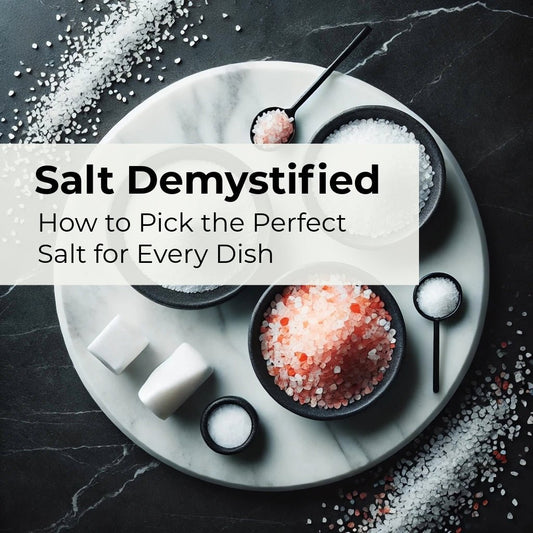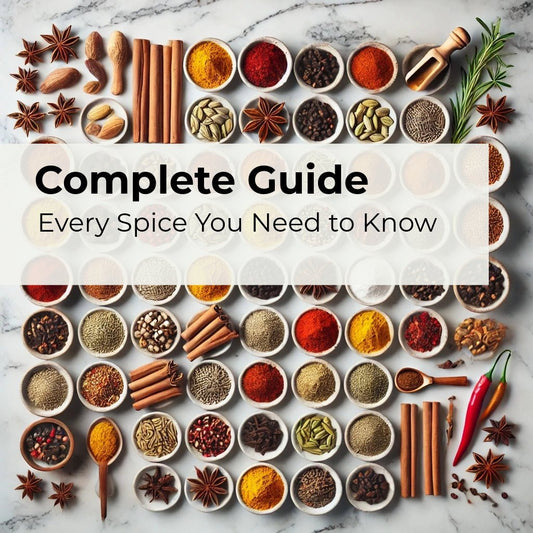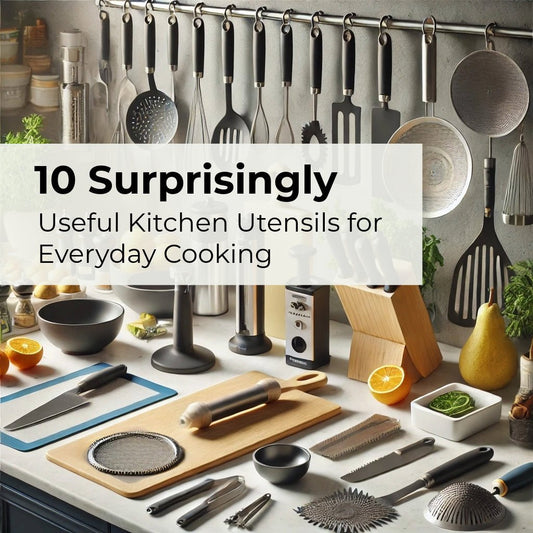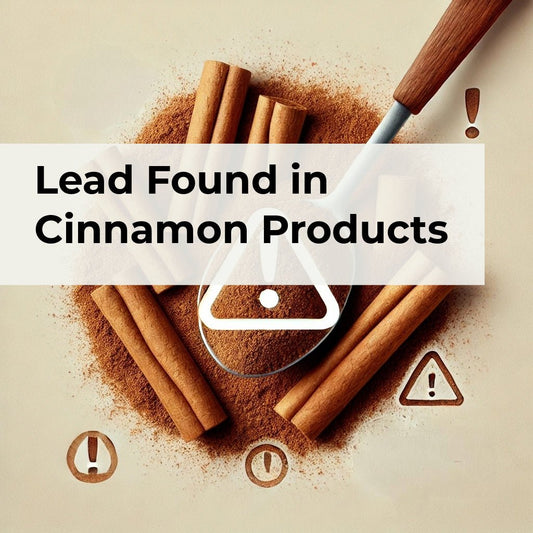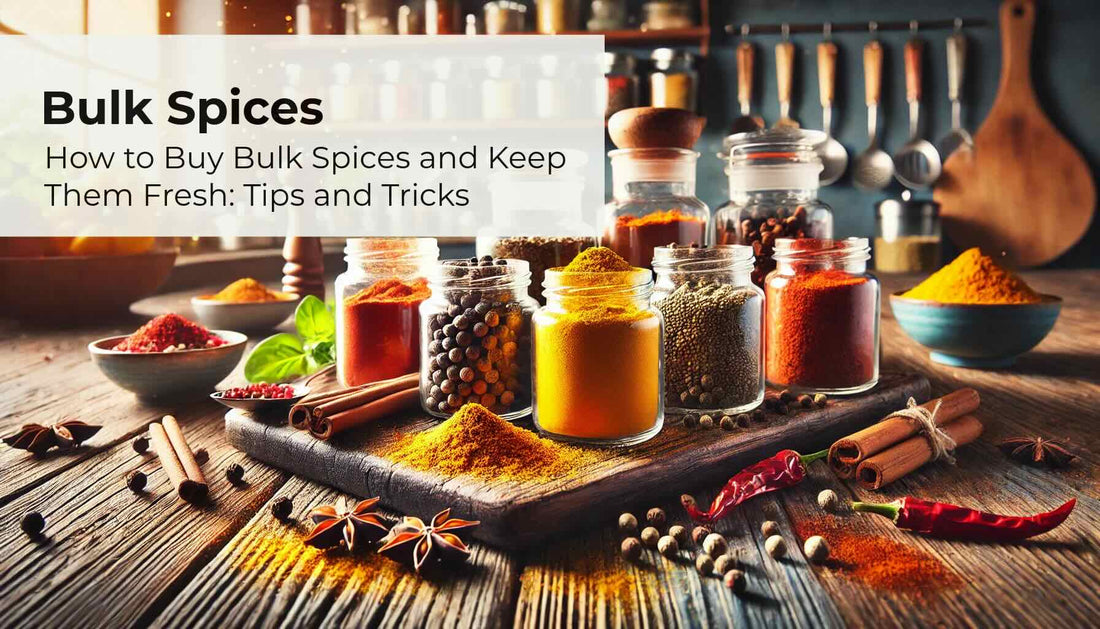
How to Buy Bulk Spices and Keep Them Fresh: Tips and Tricks
Share
Buying spices in bulk can be a game-changer for your kitchen, especially if you cook often or enjoy experimenting with flavors. Whether you're a casual cook or a culinary enthusiast, understanding the advantages, disadvantages, and considerations of buying bulk spices is key to making the most of your ingredients. In this guide, we'll explore the benefits of buying spices in bulk, key factors to consider, where to find the best deals, and how to ensure you're getting the highest quality. Plus, we’ll share some creative ways to use up excess spices.
Advantages of Buying Bulk Spices vs. Jars
-
Cost Savings:
-
Bulk Buying: One of the most significant advantages of buying spices in bulk is the cost savings. By avoiding the added costs of packaging and branding, you often pay significantly less per ounce than when buying pre-packaged jars.
-
Fun Fact: Celebrity chefs like Gordon Ramsay and Ina Garten are known to buy their spices in bulk, keeping their kitchens stocked with fresh ingredients without breaking the bank.
-
Reduced Waste:
-
Environmental Impact: Purchasing in bulk reduces packaging waste, making it an environmentally friendly option. Fewer jars and plastic containers mean less waste heading to landfills.
-
Customization:
-
Tailored Quantities: Buying in bulk allows you to purchase exactly the amount you need, whether it's a tablespoon for a recipe or a pound for regular use. This flexibility helps you avoid overbuying and potential waste.
-
Variety: Many bulk spice retailers offer a wider variety of spices, including rare and exotic options not typically found in standard jar sizes.
-
Fresher Spices:
-
High Turnover: Spices in bulk bins are often fresher than those sitting in jars on supermarket shelves due to higher turnover rates. This means you’re more likely to get spices that retain their flavor and potency.
Disadvantages of Buying Bulk Spices
-
Risk of Spoilage:
-
Shorter Shelf Life: If you don’t use your spices quickly enough, they may lose their potency. Ground spices, in particular, can lose their flavor more rapidly than whole spices.
-
Waste: Overbuying can lead to waste if the spices lose their flavor before you use them up, negating some of the cost savings.
-
Storage Challenges:
-
Space Requirements: Bulk spices require more storage space and may need specialized containers to keep them fresh.
-
Quality Degradation: If not stored properly, bulk spices can absorb moisture, lose their aroma, and become clumpy, making them difficult to use.
-
Overbuying Risk:
-
Potential for Excess: While buying in bulk allows you to purchase the exact quantity you need, it can be tempting to buy more than necessary to take advantage of cost savings. This can lead to an excess of spices that might go unused, especially if you’re experimenting with a spice you don’t use frequently.
Key Considerations When Buying Bulk Spices
-
Expiration and Shelf Life:
-
Know Your Spices: Spices don’t spoil like fresh produce, but they do lose potency over time. Ground spices generally last 1-2 years, while whole spices can last up to 4 years. Buying in bulk is beneficial if you use certain spices frequently.
-
Storage Tips: Store spices in airtight containers in a cool, dark place to extend their shelf life. Reducing moisture is crucial—keeping spices dry helps maintain their flavor and prevents clumping. Consider adding a small amount of uncooked rice to your spice containers to absorb excess moisture.
-
Proper Storage:
-
Containers Matter: Invest in high-quality, airtight containers. Glass jars with tight-fitting lids are ideal. Label them with the purchase date to keep track of freshness.
-
Reducing Moisture: Spices stored in dry conditions retain their potency longer. Moisture is one of the biggest enemies of spices, leading to clumping and a decrease in flavor intensity.
-
Quality Control:
-
Inspect Before Buying: When buying in bulk, it's essential to assess the quality of the spices. Here’s how to check:
-
Color: Fresh spices are vibrant in color. For example, turmeric should be a bright yellow-orange, and paprika should have a rich red hue. If the color appears dull or faded, the spice may be old.
-
Aroma: The smell is a key indicator of freshness. Crush a small amount of the spice between your fingers. For example, cumin should have a strong, earthy scent, while cinnamon should be sweet and fragrant. If the aroma is weak or musty, it’s likely past its prime.
-
Texture: Whole spices like peppercorns should be firm and not easily crushed. Ground spices should be smooth, not clumpy. If a spice feels too soft or clumps together, it may have absorbed moisture.
Where to Buy Bulk Spices
-
Local Markets and Spice Shops:
-
Farmers Markets: These are often great places to find fresh, locally-sourced spices in bulk. You can smell, see, and sometimes even taste the spices before purchasing.
-
Specialty Spice Shops: These stores offer a wide range of spices, often including rare and exotic varieties. The staff can provide valuable advice on spice usage and storage.
-
Online Retailers:
-
Convenience: Online shopping allows you to compare prices and read reviews before purchasing. Websites like Penzeys, The Spice House, and Burlap & Barrel offer high-quality bulk spices with detailed information about their sourcing and shelf life.
-
Wholesale Clubs:
-
Costco and Sam’s Club: These retailers offer bulk spices at competitive prices. They’re a great option if you’re looking to stock up on commonly used spices like black pepper, cinnamon, or paprika.
-
International Markets:
-
Ethnic Grocery Stores: Explore local ethnic markets for bulk spices that are authentic to specific cuisines. These stores often carry spices at a fraction of the cost of mainstream supermarkets.
-
Fun Fact: Famous chefs like Anthony Bourdain loved exploring local markets during their travels, often buying spices in bulk to bring back authentic flavors from around the world.
What to Do with Excess Spices: Creative and Practical Uses
If you find yourself with more spices than you can use in cooking, don't worry! Many spices have practical uses beyond the kitchen. Here are some creative ways to use up excess spices:
-
Cinnamon:
-
Gardening: Cinnamon can be a gardener’s best friend. It has natural antifungal properties, making it an excellent option for preventing mold and mildew on seedlings. Simply sprinkle a bit of cinnamon on the soil to protect young plants.
-
Pest Control: Cinnamon can also help repel ants. If you have an ant problem in your garden or home, sprinkle cinnamon in areas where ants are entering to keep them at bay.
-
Turmeric:
-
Natural Dye: Turmeric is known for its vibrant yellow color, making it an excellent natural dye. You can use turmeric to dye fabrics, Easter eggs, or even create homemade playdough with a beautiful yellow hue.
-
Skin Care: Turmeric has been used in skincare for centuries. It has anti-inflammatory and antioxidant properties, making it a popular ingredient in face masks. Mix turmeric with yogurt or honey for a DIY face mask that can help with acne and brighten the skin.
-
Peppercorns:
-
Home Remedies: Black peppercorns can be used in home remedies for various ailments. For example, a mixture of ground pepper and honey is believed to help soothe a sore throat.
-
Cleaning: Whole peppercorns can also be used as an abrasive for cleaning. Crush them slightly and use them to scrub away stains or grime from surfaces in your home.
-
Cloves:
-
Natural Air Freshener: Cloves have a strong, pleasant aroma that can freshen up your home. Create a homemade potpourri by mixing cloves with other spices and dried flowers. You can also use cloves to make scented sachets for closets and drawers.
-
Insect Repellent: Cloves are known to repel insects. Place whole cloves in areas where you want to deter pests, such as kitchen cabinets or near windows.
-
Bay Leaves:
-
Pantry Protection: Bay leaves are great for keeping pantry pests like weevils away. Place a few dried bay leaves in your pantry or storage containers to deter these unwanted guests.
-
Crafts: Bay leaves can also be used in wreaths or other crafts due to their sturdy structure and pleasant scent. They add a natural touch to home decor projects.
-
Ginger:
-
Home Remedies: Fresh or dried ginger can be used to make soothing teas for digestive issues or colds. Ginger tea is known to help with nausea and improve circulation.
-
DIY Beauty Products: Ginger’s anti-inflammatory properties make it a great addition to homemade scrubs or hair treatments. Combine ginger with sugar and coconut oil for an invigorating body scrub.
-
Paprika:
-
Natural Colorant: Paprika can be used as a natural colorant for arts and crafts. Mix it with other natural ingredients to create non-toxic paints or dyes for children’s projects.


